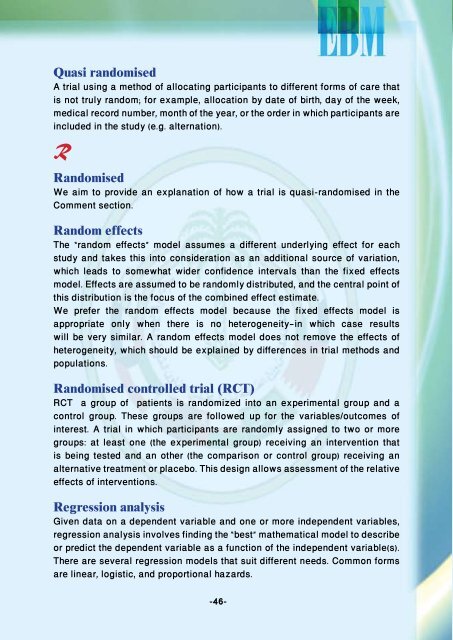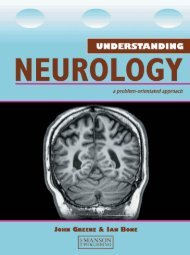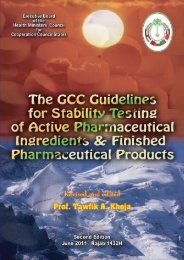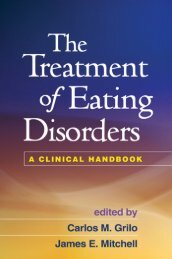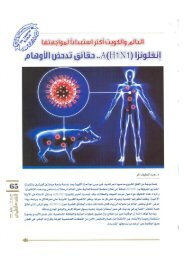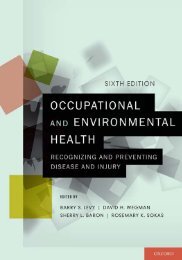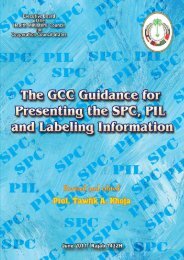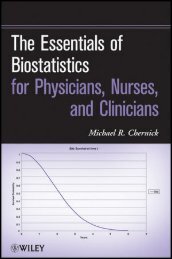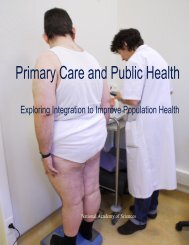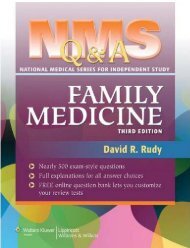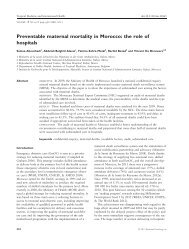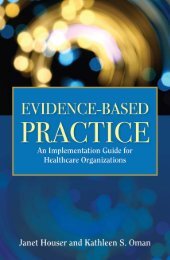Evidence-Based Medicine
Evidence-Based Medicine
Evidence-Based Medicine
You also want an ePaper? Increase the reach of your titles
YUMPU automatically turns print PDFs into web optimized ePapers that Google loves.
Quasi randomised<br />
A trial using a method of allocating participants to different forms of care that<br />
is not truly random; for example, allocation by date of birth, day of the week,<br />
medical record number, month of the year, or the order in which participants are<br />
included in the study (e.g. alternation).<br />
R<br />
Randomised<br />
We aim to provide an explanation of how a trial is quasi-randomised in the<br />
Comment section.<br />
Random effects<br />
The “random effects” model assumes a different underlying effect for each<br />
study and takes this into consideration as an additional source of variation,<br />
which leads to somewhat wider confidence intervals than the fixed effects<br />
model. Effects are assumed to be randomly distributed, and the central point of<br />
this distribution is the focus of the combined effect estimate.<br />
We prefer the random effects model because the fixed effects model is<br />
appropriate only when there is no heterogeneity—in which case results<br />
will be very similar. A random effects model does not remove the effects of<br />
heterogeneity, which should be explained by differences in trial methods and<br />
populations.<br />
Randomised controlled trial (RCT)<br />
RCT a group of patients is randomized into an experimental group and a<br />
control group. These groups are followed up for the variables/outcomes of<br />
interest. A trial in which participants are randomly assigned to two or more<br />
groups: at least one (the experimental group) receiving an intervention that<br />
is being tested and an other (the comparison or control group) receiving an<br />
alternative treatment or placebo. This design allows assessment of the relative<br />
effects of interventions.<br />
Regression analysis<br />
Given data on a dependent variable and one or more independent variables,<br />
regression analysis involves finding the “best” mathematical model to describe<br />
or predict the dependent variable as a function of the independent variable(s).<br />
There are several regression models that suit different needs. Common forms<br />
are linear, logistic, and proportional hazards.<br />
-46-


